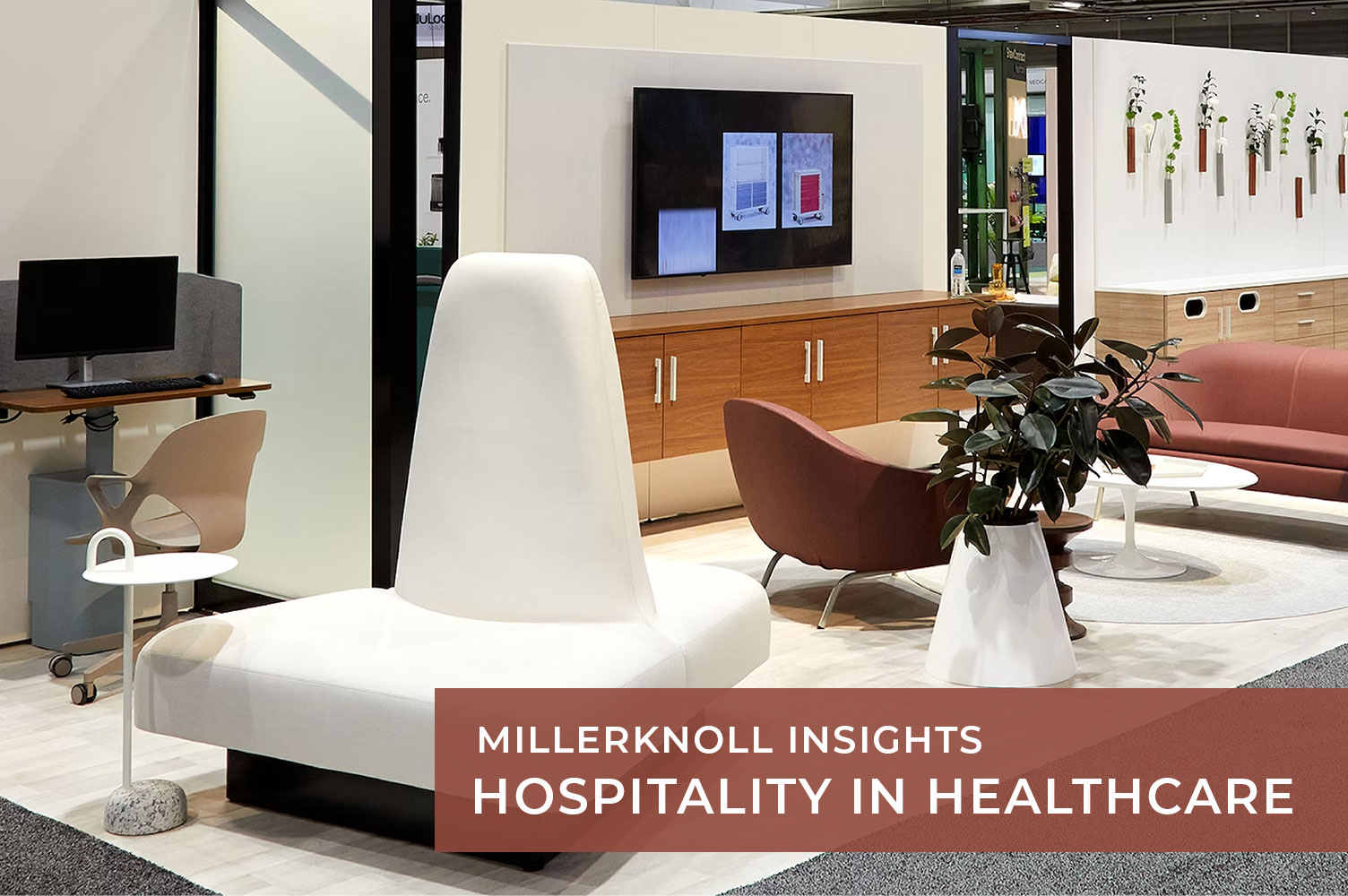
16 Nov Hospitality in Healthcare: MillerKnoll’s Fresh Perspective Presented at HCD 2023
To kick off the 2023 Healthcare Design Conference + Expo, MillerKnoll and AOS hosted a lively and informative evening at our New Orleans Showroom, conveniently situated within walking distance from the Convention Center, the designated venue for the conference. The gathering was comprised of MillerKnoll team members and dealers, architects, interior designers, and healthcare leaders from across the country, who are all looking to learn how our built environments can improve patient care. Attendees enjoyed a spirited ambiance, featuring New Orleans favorites, such as live jazz, classic cocktails, delectable bites, and stunning views of the historic French Quarter and downtown.
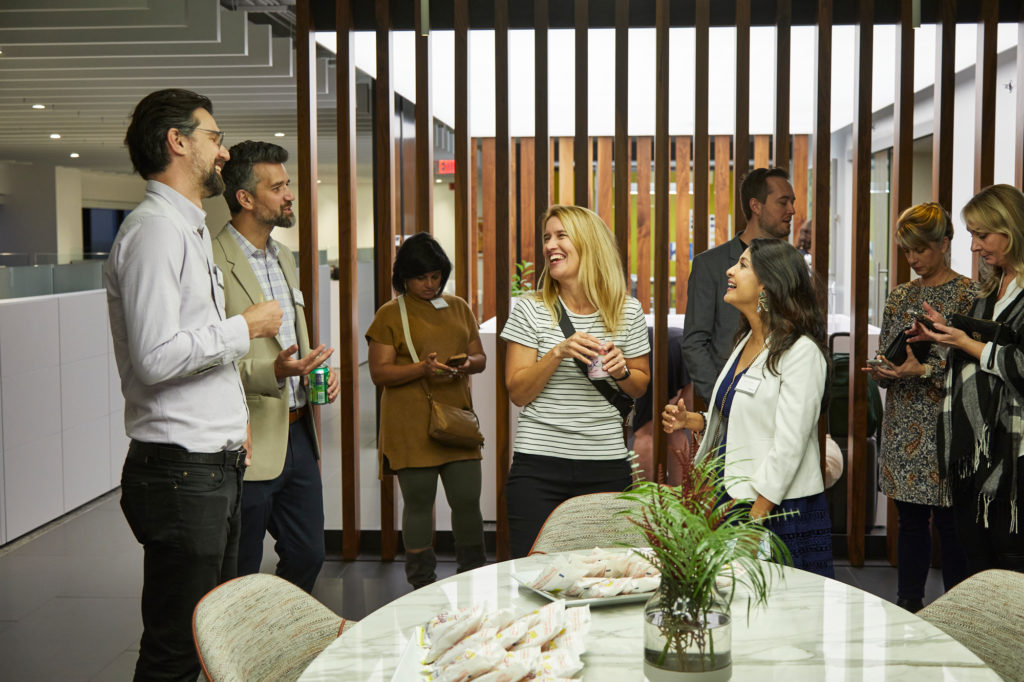

Over the course of the evening, MillerKnoll shared fresh insights on the intersection of hospitality and healthcare, followed by an interactive panel discussion on inclusive design—including a sneak peek at a new sensory-friendly chair they co-designed with Jefferson Health. Dr. Michelle Ossmann, Director of Health Knowledge and Innovation at MillerKnoll, led the presentation, which delved into strategies that go beyond amenities and accommodations to deliver better health outcomes. Guests on the panel included Robert Melville, Visiting Assistant Professor in the Industrial Design Program at Thomas Jefferson University, and Dr. Angela Jones, Director of Psychology at the Jefferson Health Center for Autism and Neurodiversity, who discussed designing for inclusion.
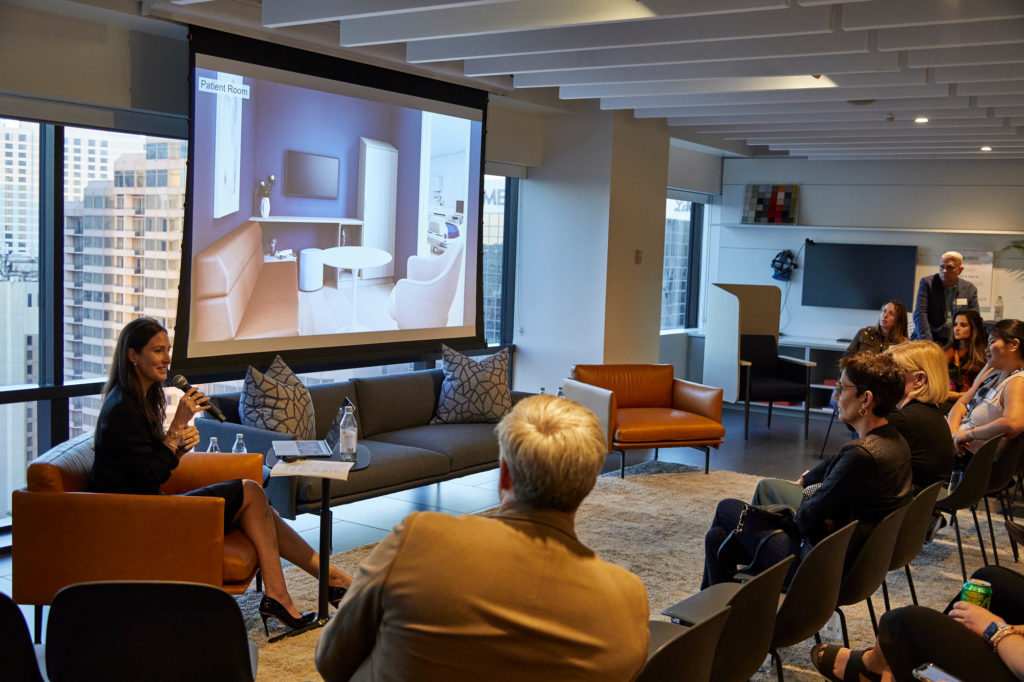
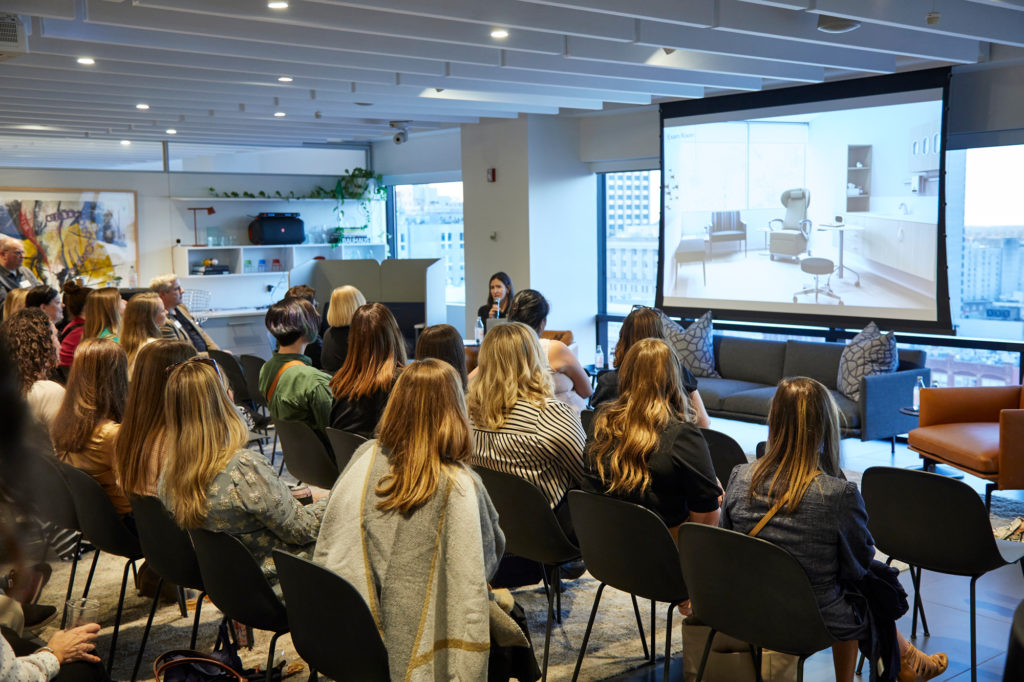
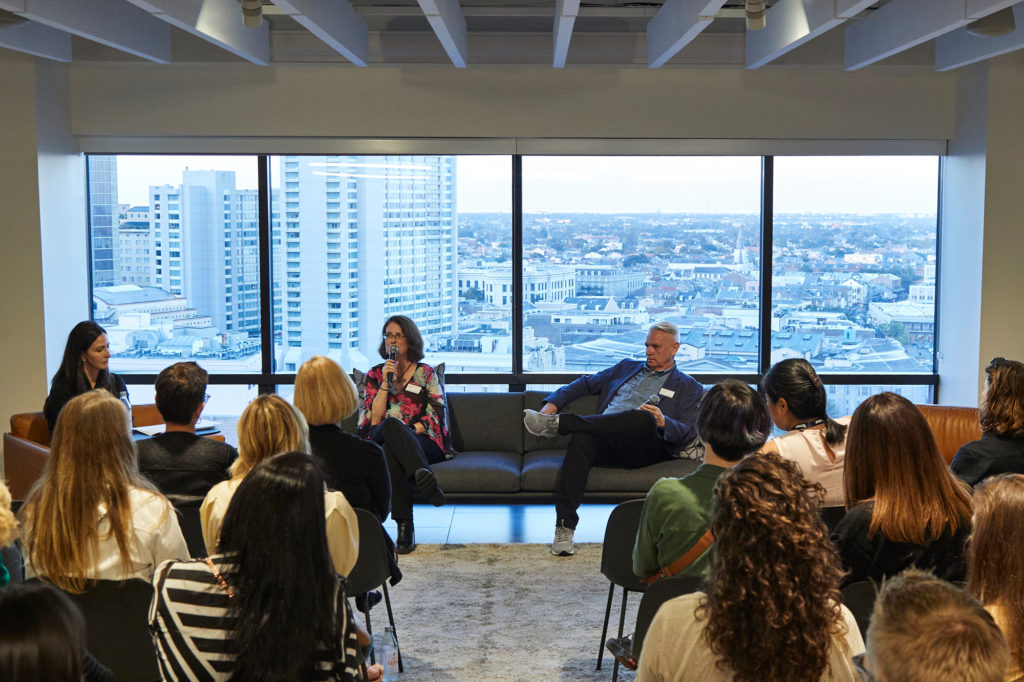
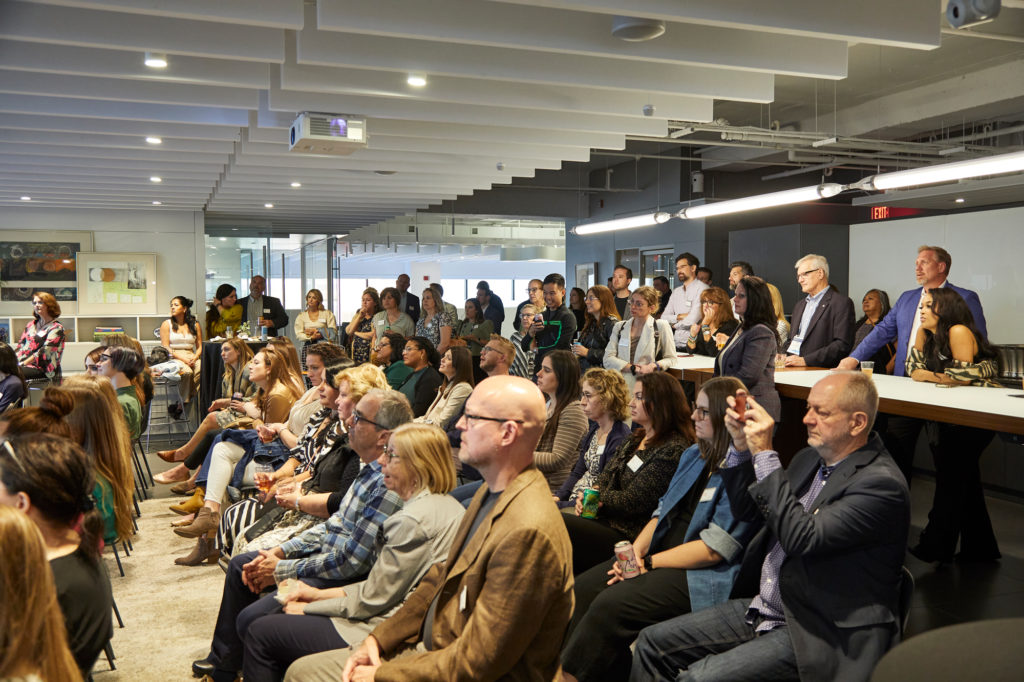
Hospitality in Healthcare
People today have more choices for healthcare than ever before, and expectations for the services they receive have never been higher. Simultaneously, health systems remain focused on a dual challenge: attracting and retaining patients and staff and dealing with staff shortages and burnout exacerbated by the pandemic.
Thus, many healthcare systems are turning to hospitality industry experience models to differentiate their brands. Growing research suggests that organizations focusing on hospitality and the quality of relationships can optimize patient satisfaction and improve the employee experience.
This means though going beyond basic amenities and accommodations, such as food and beverage, to elevate the experience of care for all and improve health outcomes.
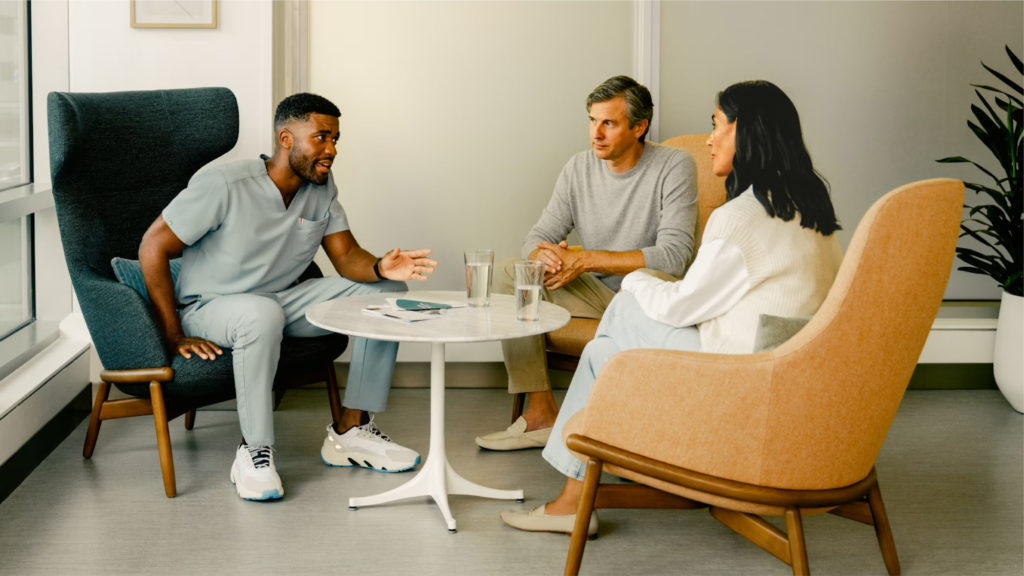
Hospitality is about relationships, not just the intent to show hospitality. It is a way of life that is based on welcoming, caring for others, and providing for fundamental human needs.
Hospitality also frames the relationship between hosts and guests. In healthcare though, the guest-host paradigm frequently shifts within the layers of the building and between admin, staff, patients and families, and visitors. It’s a relational, place-based activity1 that seeks to meet people’s basic needs from safety and security to food, drink, shelter, and personhood.
In healthcare, hospitality encompasses considerations of spatial boundaries, ownership, and obligations. It unfolds in shared spaces and interpersonal interactions.
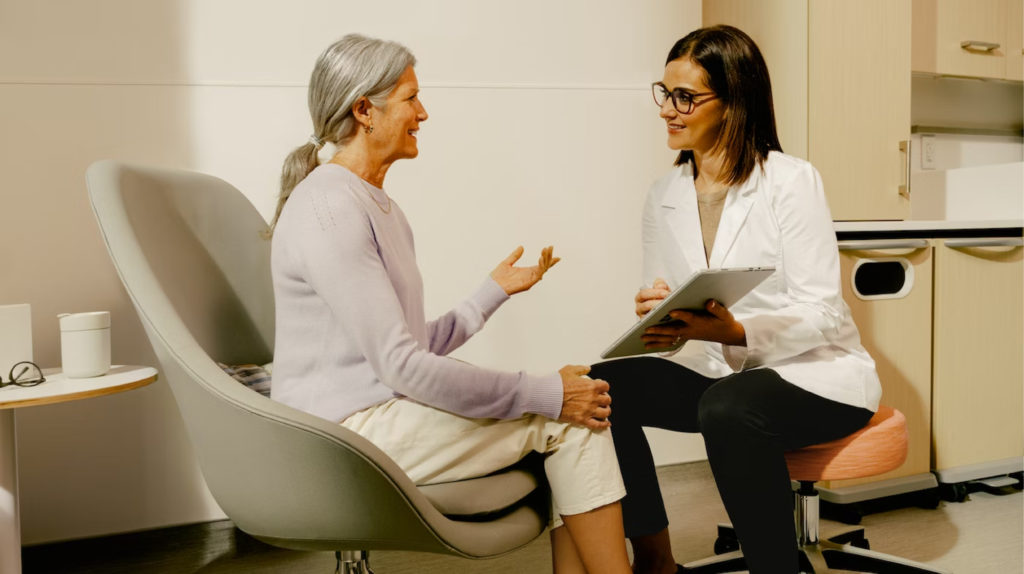
Hospitality in Healthcare
Designing for relationship-based hospitality has three main dimensions: protection, intellectual welcome, and an open table.2 Keep in mind hospitality is relational, so it’s important to concentrate on points of interaction.
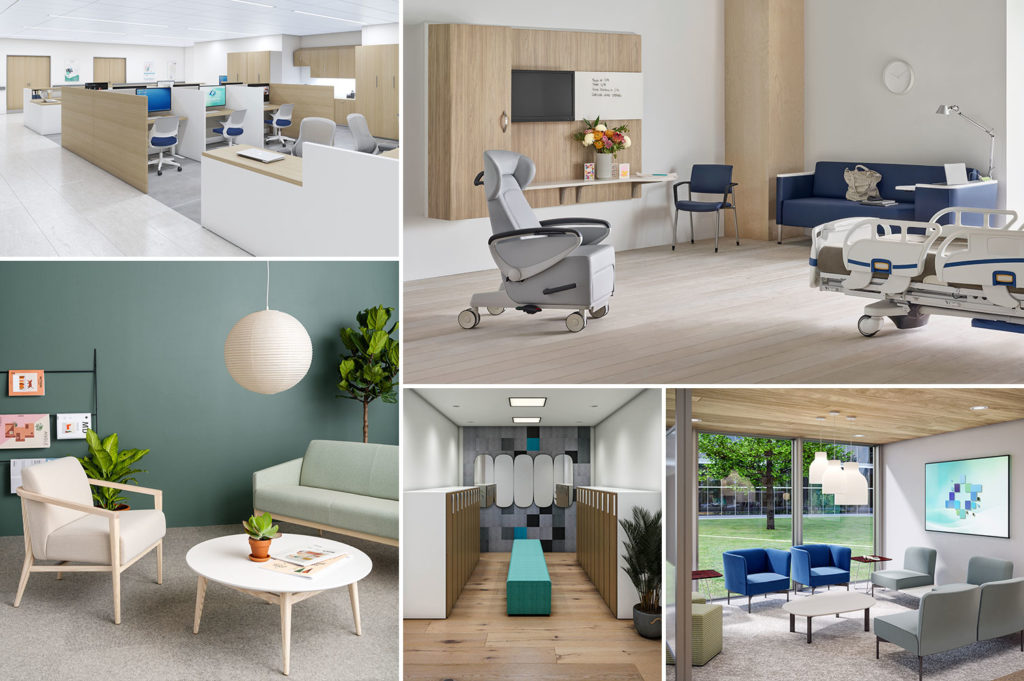
Protection
Create spaces that communicate, cue, and afford physical and psychological safety and security to help lower stress and anxiety.
Intellectual Welcome
Use inclusive design principles to guide space planning so that people from all backgrounds might experience belonging.
Open Table
Promote cross-role, same-level human interaction, especially with a shared meal or beverage to encourage sharing and trust.
All of this adds up to driving better outcomes for health systems by delivering superior care through better employee and patient experiences. Aligning the built environment, organizational processes, and culture are critical to organizations success in bringing relationship-based hospitality to healthcare experiences. If these elements are missing, even the best-designed space won’t be enough to deliver hospitality.
Further Resources
MillerKnoll Hospitality in Healthcare
MillerKnoll 2023 Healthcare Design Conference + Expo
Experience the Space
See how MillerKnoll combined these insights into thoughtfully designed vignettes at their HCD Expo booth. They showcased nearly 50 products, including a new sensory-friendly chair they co-designed with Jefferson Health. Below you’ll find research-driven products from across the MillerKnoll collective of brands, including Herman Miller, Knoll, NaughtOne and Muuto, that meet the needs of staff, patients, and visitors.
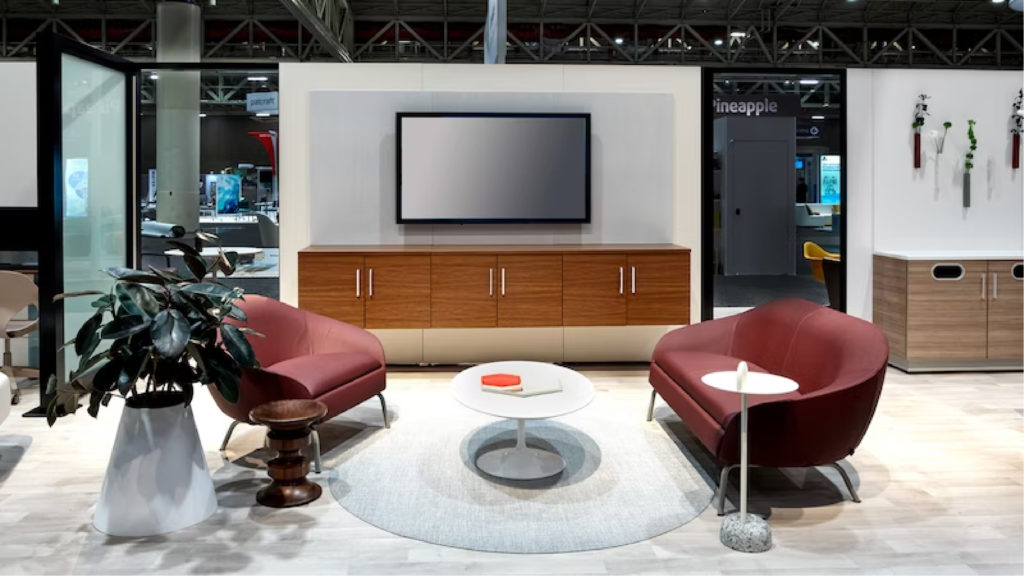
Boutique Waiting
Set the tone for an elevated care experience by accommodating the varied ways people want to wait.
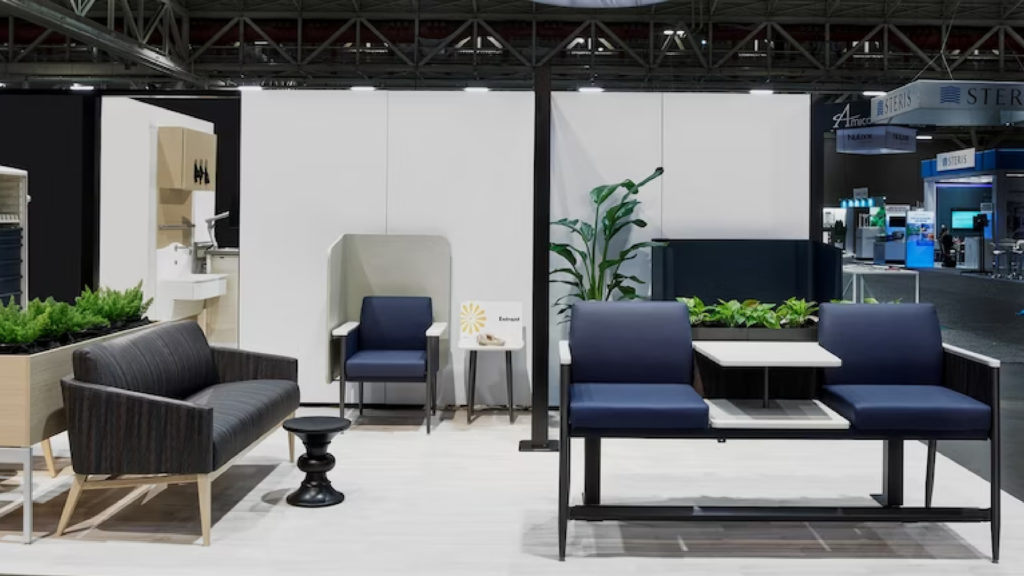
Traditional Waiting
Anticipate people’s needs with inclusive design. Blend in furnishings for all abilities and ages so everyone feels like they belong.
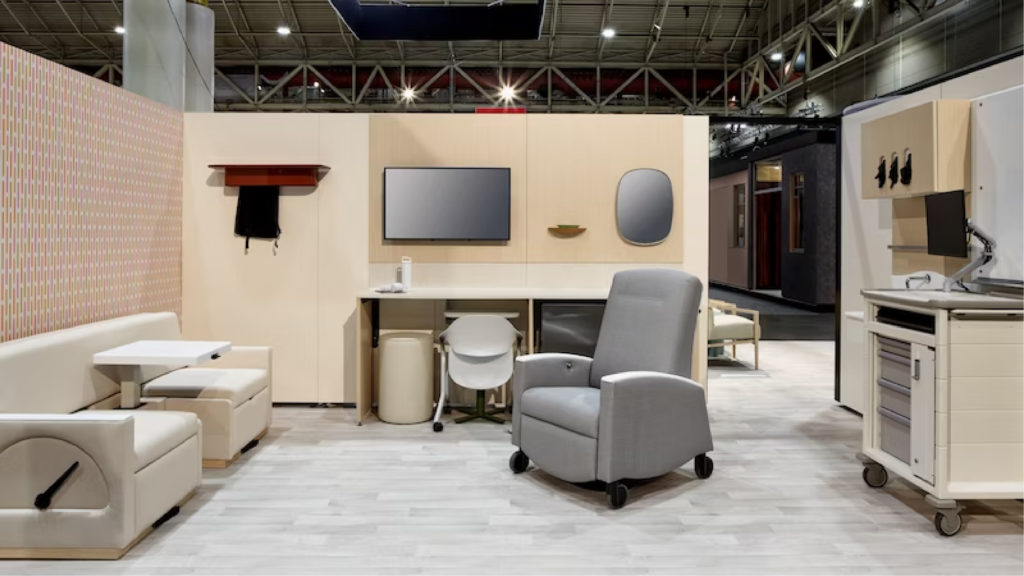
Patient Room
Give patients ways to host their loved ones with nourishment, refreshment, and mobile furnishings that let them be who they are naturally.
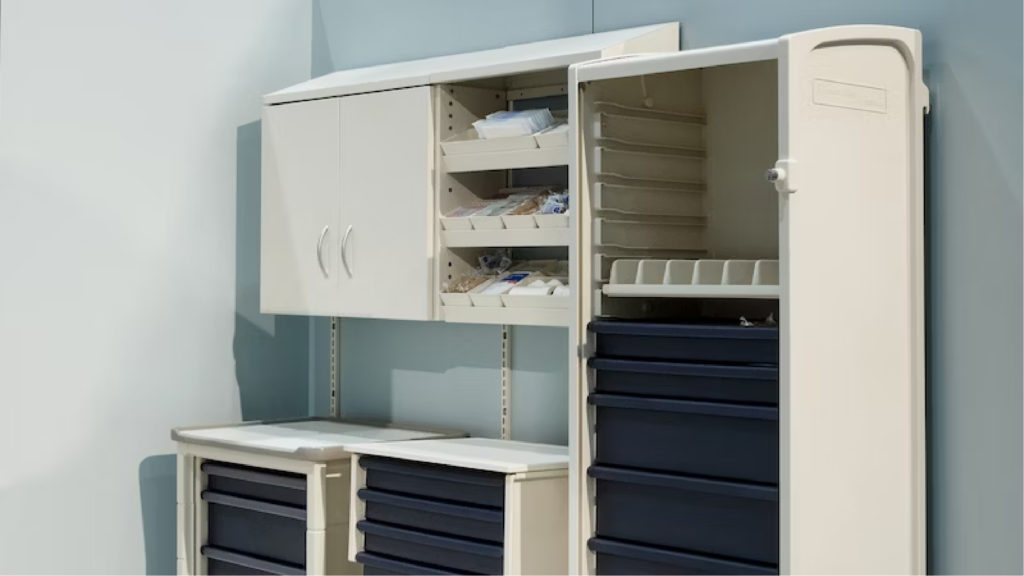
Materials Management
Improve efficiency, reduce waste, and lower supply costs with an intuitive, customizable, and adaptable materials management system.
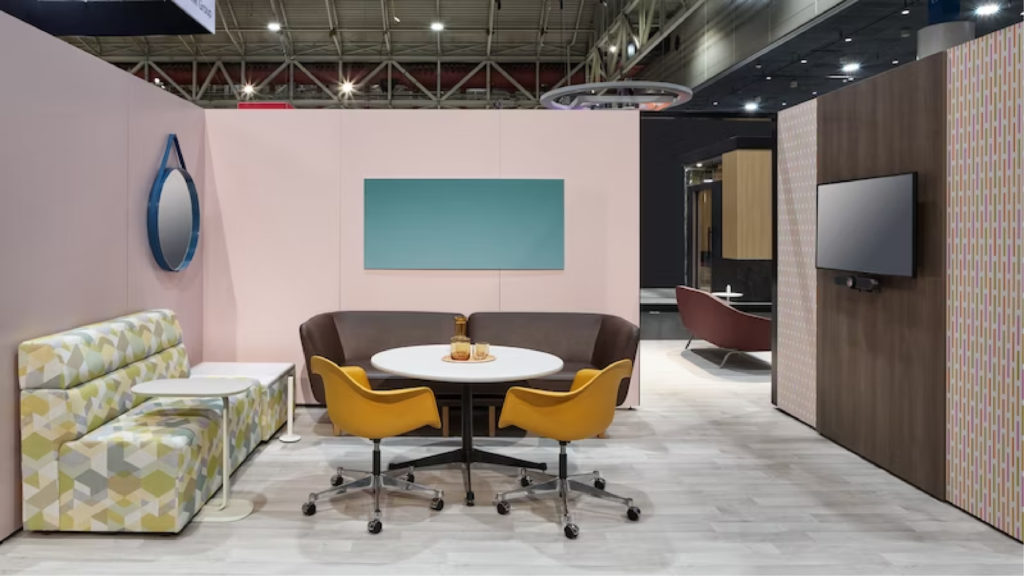
Respite/Consult Space
Optimize organizational efficiency and provide a better work experience for your staff with a flexible space for staff respite or patient consult.
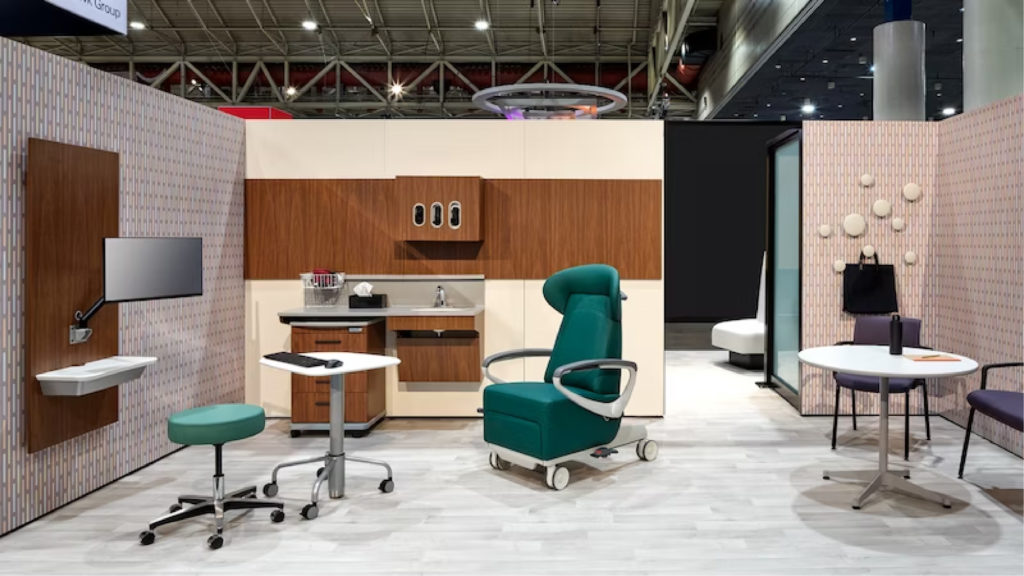
Exam Room
Optimize the experience for patients and staff with comfort and functional versatility for exams, consultations, and conversations.
Sources
MillerKnoll. Hospitality in Healthcare. 2023.
1 Brotherton, Bob. Towards a definitive view of the nature of hospitality and hospitality management. International Journal of Contemporary Hospitality Management 11, no 4 (1999): 165-173.
2 Jayme Reaves. Safeguarding the Stranger: An Abrahamic Theology and Ethic of Protective Hospitality (The Lutterworth Press, 2016)

No Comments